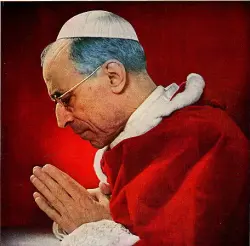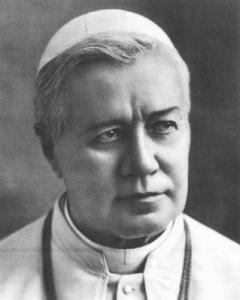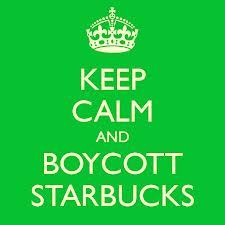Schism?
I am a bit surprised everytime I read of bloggers and commenters warning about an impending “schism”. I thought I would add a couple of reflections.
St Athanasius refused to obey to Pope Liberius. He went so far as to start appointing bishops of his own initiative and without papal approval. Mind, his were – for all I know – real territorial bishops, appointed to run a diocese. Not bidhops like the SSPX, who have no territorial jurisdiction and whose task is principally to allow the SSPX to survive as acreligious order.
So: was St. Athanasius (and his allies and appointees) “schismatic”? Of course not! They were good, orthodox Catholic caring for the perpetuation of good, orthodox Catholicism. Were they, in their time, accused of schism? I am sure they were. No doubt, the Papal fraction threw at them every insult in the dictionary. But were they, therefore, scismatics? No.
The same will apply to the Burke, Schneider, & Co. Of the world, if in October, the heresy hits the fan. There will be lack of obedience. There may well be own ordination of bishops. I can well imagine a number of diocese and even Countries (African, mainly) refusing en block every appointee of Francis, and basically shutting the Vatican heresy out of their own diocese exactly as Athanasius & Co. did. But they will, most certainly, not be in schism.
I leave it to others to decide if a Pope can himself be in schism, as he refuses to obey to the Petrine Authority as expressed in and practiced by his predecessors. It seems a strange concept to me, that is difficult to digest. A Pope who disobeys to the Church does not seem, to me, in “schism”. It’s a bit like accusing a King of lese majesty.
Personally, I do not care much about how you call it, and I wonder if at the time of Athanasius there were big discussions about it rather than a simple, but very effective hands-on approach to the crisis that plagued them. But I know one thing: a Pope to whom obedience must be refused is a Pope who has put himself in a position of factual heresy, however he may try to deny the fact. It is, therefore, so, that in this case the Pope is outside, and the orthodox Catholics are inside. And it is so, that the latter can never be told – and should never claim for themselves – that they are “in schism”, albeit a justified one. They can – like the SSPX – never be Schismatic, as long as they are on the side of Ortodoxy. You can never be true to Christ and Schismatic at the same time.
We will, no doubt, read more about it in the months to come, as the two opposing fronts of Orthodoxy and Heresy face each other and outright war is a distinct possibility. But I truly would suggest that bloggers and commenters do not put us, the orthodox Catholic, in some “schismatic” drawer merely because we refuse to obey to a Pope of whom our religion says that the very man should not be obeyed.
I do not feel well in the shoes of a “schismatic”, and be they so virtuous. I can’t fathom the Athanasius party as such. I also have difficulties in seeing a Pope as disobedient to himself, and I remind you that the decision that he is not the Pope anymore could not be left to our private judgment, so he would still be Pope pending deposition.
I just can’t see a “schism” in the traditional sense (in the Orthodox, or Henry VIII sense) coming. What I can see is a Pope falling into heresy, and carrying with himself a part of the Church whilst formally still the Pope, until he dies or is declared deposed by a Universal Council in the proper way.
But a “schism”? No.
M
Posted on February 9, 2015, in Catholicism, Conservative Catholicism, Traditional Catholicism. Bookmark the permalink. 22 Comments.




















The problem with deposing a Pope these days is that it is the cardinals that would have to do the deposing, and there are so many confused or outright dissenters among them that it would be difficult to get the numbers. Remember they elected the Pope and since the conclave the Pope himself created more cardinals and their numbers will soon be further increased.
If it is true that a heretical Pope is automatically excommunicated and cannot be Pope ( which makes perfect sense to me)..and
then there is a problem with declaring him so..he is in fact still not the Pope, but just fills the seat until he dies, or is later deposed. So anyone who did not follow him would not be in schism in my estimation..and those who followed the the true faith and the new leader , even if he did not have the title Pope…would be the Faithful Catholics.
I do not like to say much about SSPX because I do not thoroughly know their arguments against the Council documents themselves. I am hopeful that given the right people to talk to in the Church that they could be reconciled. I know that some of the documents were intentionally ambiguous..but being old I sort of automatically read them with more continuity than younger people, and having been in the classroom and in the pews, beginning in 1950, I could see that some changes were needed and all were not saints. Some of the practices also made going to frequent Communion difficult, such as fasting from everything including water from midnight. I also happen to like both Masses, and personally I think the TLM should be “frozen”
or nearly so and Celebrated often. The NO can be celebrated in a devout fashion and it does not bother me that it may resemble the last supper, the first Mass, more than it does the Crucifiction….I think we need both.
To my knowledge an ecumenical Council would have to depose a Pope, not the Cardinals.
A Pope who becomes heretic would still be Pope. He would be an heretical Pope. We would not have the authority to decide whether he is Pope or not. But we would obviously not be bound to obedience to him, certainly not in anything heretic, probably not in anything at all (say, bishops’ appointments).
M
Orthodox Catholics who hold every dogma of the Faith of the Church including that the pope is the head of the Church cannot be schismatic, even if they vociferously disagree with the pope, and point out that he is espousing heresy. I think the SSPX situation shows that: they are irregular but not schismatic, despite the long efforts originally made to try to make it so which failed. This situation is very different, because the situation is putting the words of Jesus in the Gospels in the spotlight, which Francis, Kasper and company would like somehow to deny as still valid, but that would require them to say in effect that Jesus lied or is not God. Even poorly catechized Catholics couldn’t stand for that. If they did so declare, and attempt to force that on the Church, they would be the schismatics and real Catholics would see and understand the obvious blatant truth in that. He might remain pope even in the face of pressure to resign but he would be ignored throughout the world by even the lukewarm Catholics who wouldn’t be able to avoid the obvious problem. We also might be witnessing a revisit to a pope/antipope situation in the not-too-distant future, something most of us I guess thought could not happen again. Yet, I can imagine enough cardinals coming together to depose him and elect another as pope if he pushed his program to the limit. Is that a schism then? Or is that akin to a pope with dementia? I don’t know really. But, I have never seen such blatant attempts to undermine the dogmas of the Eucharist by the hierarchy and such arrogance to contradict the Commandments. Right now, I really think that they see that they cannot win. They may try a few alternative ways to make it fly, but it will not, and then they will limp into October trying to find ways to save face. Either way, Francis has seriously damaged his papacy and history will not remember him fondly, but forever as one of the “bad” popes, unless he has suddenly a clearing of the mind and does a reversal, becoming a staunch proponent of orthodoxy. It could happen since nothing is impossible for God. I know I’ve been praying for it and I’m pretty sure I’m not the only one.
As always, Mandabor, I really appreciate your thoughtful posts.
Thanks, Steve. I doubt what you say would happen, though. Methinks, the CINOs would greet the news of the “modernisation” of the Church, pointing out that finally the Church aligned herself to them. But the opposition would be still so massive as to destroy the man, and among practicing Catholic he would not have an easy life.
M
I DID IT AGAIN WITH SPELLING MUNDABOR! Forgive me and my typing!
Excellent! Thank you, from a long-time SSPX admirer, and, I hope, a helper.
Helper is very well said.
Comrade in arms (of sort) says it too
M
For about 30 years I have been aware that there is actually an organized ‘schism’ in the Church which has been referred to mainly as ‘liberal Catholics’ as opposed to ‘orthodox Catholics’. An excuse offered for not removing the heretical ‘liberal’ bishops and clergy was fear of a schism because bishops can split off from the Church and begin ordaining priests and form an actual schism . I was informed by a liberal heretical priest that their intent was not to leave the Church as Martin Luther did, but to change the church’s teaching from within and eventually elect a Pope who would declare their heretical ideas to be Catholic Church dogma.
The heretical ideas mainly involved moral issues such as the issues proposed for discussion at the upcoming Synod, among them the condoning of divorce, contraception, homosexual
intimacy.
I never saw any value in the argument.
Bishops who leave the Church and “consecrate” other bishops have always existed. Lots of them. But as they are not in communion with the Pope, their “appointment” loses every character of Catholicism. They are in no ways bishops of the Church, merely clowns in their own circus. The Sacrament of Holy Orders is not a magic formula. It is also the result of a situation of fact. It must be functional to its aim. It must be aimed at doing what the Church wants to do. Otherwise, it all counts for nothing.
This is one of the reasons why the “ordination” of “Anglican” “bishops” would not make of them bishops, even if they could (which they can’t) show an uninterrupted succession of appointments from a true Catholic bishops. They aren’t Catholic bishops! That’s it!
M
“To my knowledge an ecumenical Council would have to depose a Pope, not the Cardinals.”
It is the Pope who calls an Ecumenical Council.
“A Pope who becomes heretic would still be Pope. He would be an heretical Pope.”
There was much discussion about this on other blogs when Francis began his very questionable comments, endorsements and appointments. I do not have the quotes in front of me, but from papal and other weighty sources the gist is that a heretical pope automatically
excommunicates himself and one who is in excommunication cannot serve as Pope.
For deposition the Pope needs to be deposed formally by the competent Church authorities and it seems not all that clear whom that would refer to.
…”we would obviously not be bound to obedience to him, certainly not in anything heretic, probably not in anything at all (say, bishops’ appointments).”
The problem with this statement is that if we have not the competence to declare a Pope heretical, how can we decide what of whatever heresies he is teaching is true and needs to be accepted ?
Regarding his appointment, the problem exists that if he is still the Pope ( “although a heretical one”), he has the authority to appoint bishops, and heretical ones if he chooses.
Since none of this makes sense, even without knowing theology thoroughly, the ” automatic
excommunication for formal Papal Heresy and therefore automatic loss of the Papal primacy seems the only logical conclusion.
JMJT
No, it is not necessarily the Pope who calls an Ecumenical Council. In the case of Marcellinus, this was not the case. The page (above) “heretical Popes” has more on the matter. The same goes for the self-excommunication.
The “competent authorities” could never be the Cardinals. The Cardinals are not even part of the hierarchy, they are only counsellors to the Pope. The bishops, however, are the successors of the Apostles.
As to the episcopal appointment, a Pope can depose bishops. Therefore, a following Pope could depose the bishops thus appointed, without even going into the matter whether they were validly appointed. And the matter whether they were validly appointed does not necessarily mean that one is not Pope. If you disobey the Pope because he is heretic, the Pope is still Pope, but you refuse to obey to him in what pertains to his appointments.
It does not mean that you, or I, can decide who is Pope.
M
M
The problem I always had with the Ecumenical council proposal in this case is that the reason some councils are considered Ecumenical is because the Supreme Pontiff acknowledged them as such (the lack of a criterion for what makes councils binding is the incoherence of Eastern schism). That is, if we are to focus on the ‘binding’ element.
If the word ‘Ecumenical’ is used simply to signify the scope of representation in such scenarios, I’m not quite sure what the difference is. Numbers per se matter very little.
I do not think there would be any exit from the conundrum than to decide that he who is orthodox is a Catholic and he who isn’t is out.
If TSHTF, Burke & Co. would unite in a Ecumenical Council and declare the Pope deposed, or self-deposed, or whatever, but not in office anymore. Those bishops would, then, represent the Church in her entirety, because the others are on the side of heresy and can therefore not represent the Church.
Think of Ahanasius: he would never have allowed a “democracy” or “majority vote” to decide whether Arianism is fine. He would have done the right thing, end of.
If TSHTF, I think this is the scenario we might well be steering. Then, we would have a visible Church with an heretical Pope until the Council declares the Pope deposed and makes another one. Not a clear cut solution, I know, but there aren’t any.
M
From the comments I have been seeing, I never thought that the connotation was that orthodox Catholics would be in schism, but that the great majority of the hierarchy would subscribe to the heresy and thus be in schism.
In this sense, the orthodox Catholics would be blamed as the instigators of the schism for not following the heterodox pastoral “aggoirnamento” at the expense of doctrine.
Yes, that would be the logical solution. But can a Pope be in schism? I do not think he can, unless we want to engage in some serious gymnastics. And in what does a Schism consist? The rupture of the union of the faithful. But the latter has always been seen in being in communion with the Pope, so it sounds all very strange.
M
Thank you for your reply, Mundabor. Today I found this discussion on Deposing a Pope within another article:
http://remnantnewspaper.com/web/index.php/articles/item/1284-can-the-church-depose-an-heretical-pope
There are various opinions and I still do not feel that I am on firm ground with this. I would like to read or hear Cardinal Burke or some other scholarly Bishop or Cardinal ‘firm up’ this matter,
particularly as it pertains to what is happening now with Francis, the Synod, etc.
The article you mention is in my section “heretical Popes”.
There is, I am afraid, no really “firm” ground. We are in uncharted territory.
Yes, we are on uncharted territory ..at least we know who are some of the good Bishops and Cardinals .
The victors decide who is, or is not, a heretic. That is, it may not be apparent to those living during a schism. We can only hope to do our best.
This is true in politics, not religion. The Arian Crisis is abundant proof of that.
The gates of hell will not prevail.
I should mention that I believe the RC Church will look Episcopalian, and today’s conservatives will be tomorrows schismatics.
See comment to the other post.